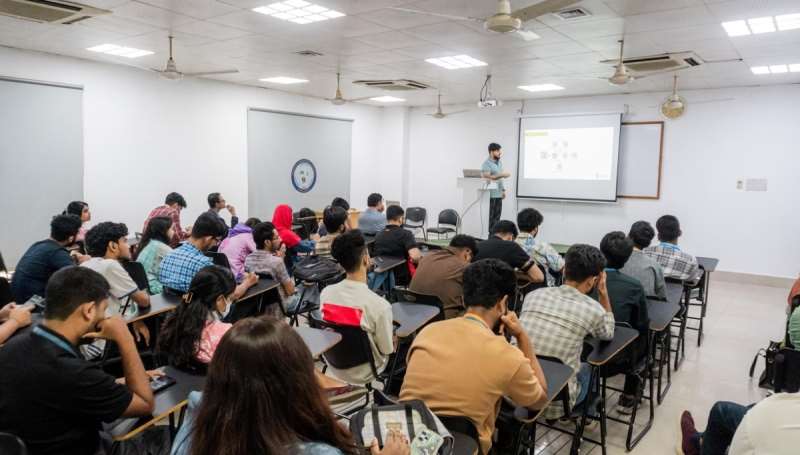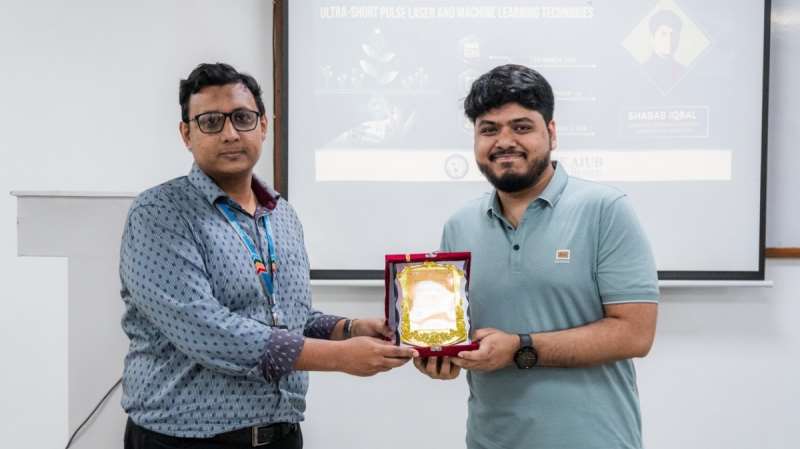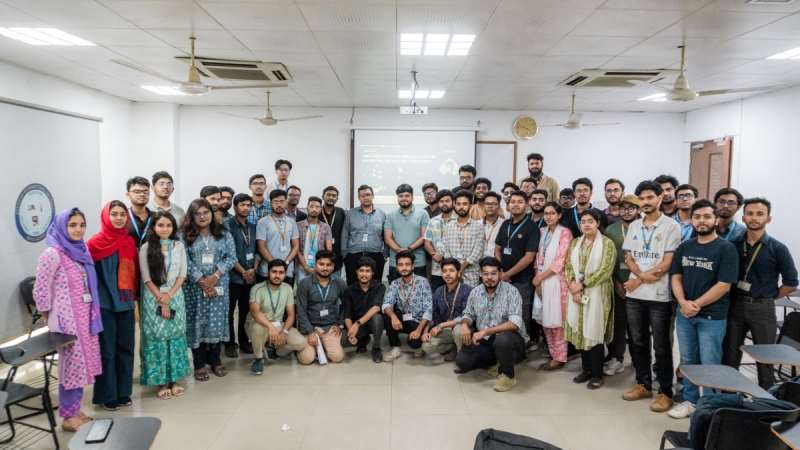On March 12, 2025, the IEEE AIUB Student Branch organized a seminar titled "A Novel Approach for Detecting Damage in Canola Seeds Using Ultra-Short Pulse Laser and Machine Learning Techniques”. The seminar aimed to introduce AI-driven methodologies and laser-based technologies for seed quality assessment, contributing to the enhancement of agricultural sustainability and food security.
The seminar was inaugurated by Prof. Dr. A.B.M Siddique Hossain, Advisor, IEEE AIUB Student Branch, Dean, Faculty of Engineering, AIUB. He welcomed attendees, discussed Canola seeds' benefits, and highlighted the role of a Bangladeshi researcher in Canola seed disease treatment abroad. Furthermore, he emphasized the growing significance of machine learning in various fields and encouraged students to explore its applications in agriculture.
The keynote speaker, Mr. Shabab Iqbal, Graduate Research Assistant, at the University of Manitoba, provided in-depth insights into Canola seed grading, industry objectives, and laser pulse technology. He explained radiation principles, light amplification, ultra-short pulse lasers, and their applications. In addition, he introduced YOLO v8 technology, discussing its role in machine learning and image processing. He further elaborated on the Terahertz model and GPU-based models, highlighting their integration into agricultural research and the potential for improving seed quality assessment.
The session concluded with a Q&A, where participants engaged in discussions on AI and laser applications in agriculture, demonstrating their enthusiasm for the topic.
Dr. Md. Hasan Imam, Associate Professor, AIUB, summarized the session and acknowledged the speaker’s contributions to IEEE AIUB SB, including his initiative to establish the EMBS chapter. A token of appreciation was presented to the speaker to honor his valuable insights.
By bridging the gap between artificial intelligence and agriculture, this seminar underscored the potential of technology in optimizing seed quality assessment. It aligned with SDG 2 (Zero Hunger) by promoting advancements that enhance food production efficiency and SDG 9 (Industry, Innovation, and Infrastructure) by fostering innovation in agricultural research.
The event, attended by over 40 participants, started at 2:30 PM and ended at 4:00 PM, concluding with a group photo session, marking a successful and insightful discussion on the future of precision agriculture.








